Portraits of Wildflowers
Perspectives on Nature Photography
Search on this site:
Copyright Notice
The photographs and text on this site are the property of Steven Schwartzman. You may link to these articles but may not use the photographs or text without written permission.
Information
- A way to purchase a print
- About Me
- About My Equipment
- About My Techniques
- About This Column
- Books About Texas Plants
- Some highlights
Top Posts & Pages
Recent Posts
- When is a leaf not a leaf?
- Prairie bishop and prairie parsley on the prairie
- Lake Victor
- Oh those clouds
- Prairie View Cemetery
- Insects on wildflowers
- Opening wildflowers portrayed with light and shadows
- Probably the most expansive wildflower displays we’ve ever seen
- Unfamiliar bluebonnet associations
- A new wildflower cemetery
- Before and after Inks Lake State Park
- From ground to clouds
- Another Pfloral Pflight to Pflugerville
- Inks Lake State Park in the spring
- Pfloral Pflugerville
- A study in scarlet* (and green and black)
Calendar of Posts
Archives
Native Plants
- Botanical Research Institute of Texas
- Central Texas Native Plants
- Foraging Texas
- Lady Bird Johnson Wildflower Center
- Native Plant Discussion Group
- Native Plant Society of Texas
- Native Prairies Association of Texas
- Texas Native Shrubs
- Texas Native Trees
- Texas Wildbuds
- Texas Wildflower Sightings

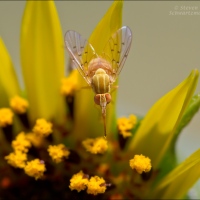
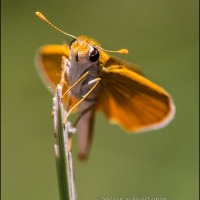
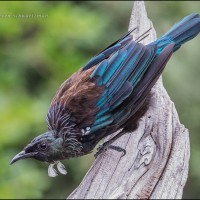
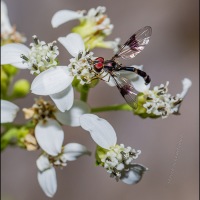
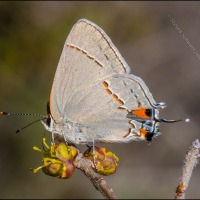
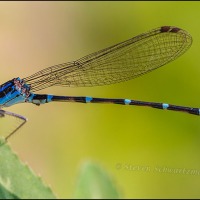
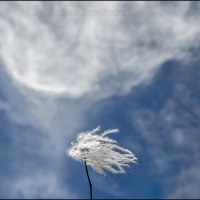
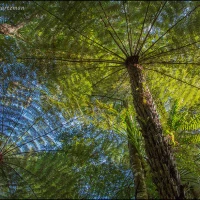
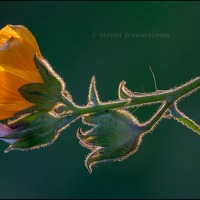
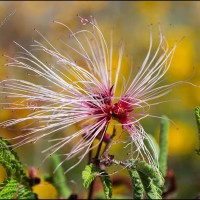
Ah, ha! I’d forgotten about these. Now, I think that I’ve seen a patch, but it was quite distant, and in an area beneath and away from a viewing platform. I wasn’t willing to go into the tangle in just my hiking boots, since it was near the water’s edge and I’d already found sloshiness. I haven’t worn rubber boots since grade school, but I think it’s time to add those to my list of camera accessories.
shoreacres
October 23, 2015 at 8:22 AM
I keep a pair of thigh-high rubber boots in the trunk of my car. They’ve allowed me to stand in muddy places and to wade into creeks for a better vantage point than I could get from dry land. They’ve also warded off chigger bites and scrapes when I’ve walked through fields of vegetation. I wore out one pair earlier this year—the aging rubber cracked in a way that turned out not to be patchable—and promptly bought a replacement.
Goldeneye is out in many places around Austin now, though not as densely as last year’s bumper crop. In spite of 2015’s wet spring, the summer drought that followed probably affected these fall-blooming shrubs.
Steve Schwartzman
October 23, 2015 at 8:37 AM
I keep a pair of these in the car. Just slip over the hiking boots. I used to use Muck boots, but they were terrible for arch support.
Steve Gingold
October 23, 2015 at 2:24 PM
I remember your complaint about the lack of support in the Muck boots, which is why you stopped mucking around in them. Neos is Greek for ‘new,’ which is what this brand was for you when you switched to it. How high up on your legs do the Neos boots reach?
Steve Schwartzman
October 23, 2015 at 3:24 PM
They reach to my knees or thereabouts. NEOS actually stands for New England OverShoes which has been purchased by Honeywell. I still wear the Mucks but not if much hiking is involved.
Steve Gingold
October 23, 2015 at 3:41 PM
Then my “explanation” of the name will be news to the NEOS people, and now the Honeywell folks. When I started in photography in 1969, Honeywell was importing the Pentax Spotmatic into the United States and putting its name on the camera. Mine came from the Panama Canal Zone, however, so the nameplate bore the original Asahi name.
I guess for most purposes boots that reach to the knees are sufficient. I’ve sometimes had occasion to wade deeper than that into creeks using the extra height of my rubber boots. There have been a few times when I’ve wished I had chest-high waders.
Steve Schwartzman
October 23, 2015 at 3:54 PM
Yup. I almost bought a pair when at LLBean a few weeks ago. Decided to wait as there’s not much water in the brooks now and no way do I want to go that deep in the winter waters. I have a pair of hip boots that have seen some action.
Back then, the only reference I had for Honeywell was slide projectors. Now they are into much more…like our humidifier that runs during wood stove season…like now.
Steve Gingold
October 23, 2015 at 4:01 PM
Wood stove season up there, 73° outside my house now—along with intermittent rain that we badly need.
Steve Schwartzman
October 23, 2015 at 4:38 PM
28°F at sunrise tomorrow and it only got to around 50° today so the house will be quite chilly.
Are you in line for the edges of Patricia?
Steve Gingold
October 23, 2015 at 4:41 PM
From what I saw in the newspaper, Patricia is supposed to keep the rain here for a few days. Let’s hope so.
Steve Schwartzman
October 23, 2015 at 4:46 PM
So close yet so far. The USDA map shows this in NY and then nowhere else in the east until you hit TX. Must have been a strong wind during seed dispersal once or twice…or some very wandersome birds.
Steve Gingold
October 23, 2015 at 2:21 PM
I think the USDA is mistaken in this case (and in fact one of the botanists at the Native Plant conference a week ago said that there are errors in the USDA maps). All the species of Viguiera shown on the maps at
http://bonap.net/NAPA/TaxonMaps/Genus/County/Viguiera
(which that botanists said are accurate) are limited to the Southwest.
Steve Schwartzman
October 23, 2015 at 3:20 PM
No waders, but I braved the patch before the rains came and discovered Helenium amarum, aka bitterweed. I had a bit of a time figuring it out, because bitterweed also is listed as a common name for Tetraneuris scaposa, the four-nerve daisy. You know all of that, of course — and now I do, too.
shoreacres
October 24, 2015 at 7:28 PM
I’ve waded into the latest classification, and as I understand things there are now two varieties: Helenium amarum var. amarum, called yellow bitterweed, and Helenium amarum var. badium, called brown bitterweed. The named colors describe the disk flowers in these otherwise virtually identical varieties.
Steve Schwartzman
October 24, 2015 at 8:40 PM